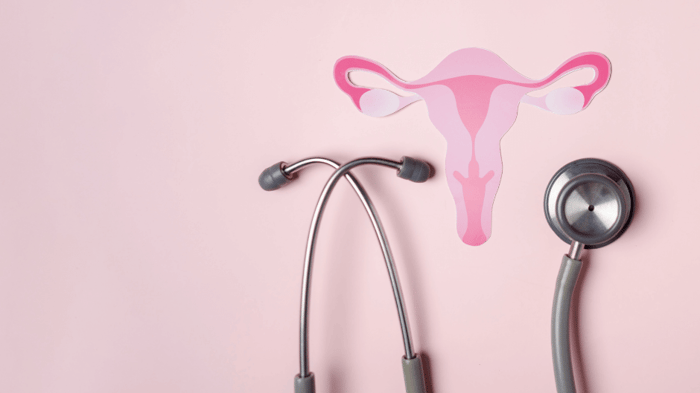Table of Contents
- Why Supplements Matter During Menopause
- Core Nutrients Every Menopausal Woman Should Consider
- Botanical Heroes for Menopause
- Spotlight on She Juicy: Natural Moisture, No Hormones
- Supplements for Brain and Mood Health
- The Gut-Skin-Hormone Connection
- 9. Putting It All Together: A Smart Supplement Routine
- FAQs About Menopause Supplements
- Supplements as Companions, Not Magic Bullets
Menopause is one of those words that carries weight. For some, it represents freedom from periods, pregnancy worries, and monthly PMS. For others, it feels like an unpredictable storm: hot flashes, insomnia, night sweats, and a sense of losing control over your body. But here’s the truth—menopause isn’t the end of vitality, sexuality, or confidence. It’s the beginning of a new phase where your body asks for support in new ways.
And that’s where supplements come in.
A balanced diet is the foundation of good health, but menopause brings unique challenges. Declining estrogen levels affect bones, skin, mood, and even your heart. While lifestyle choices like exercise and stress management are non-negotiable, supplements can provide targeted reinforcement, filling nutritional gaps and addressing symptoms directly.
But with shelves full of options, how do you know which ones are worth your time, money, and trust? This guide explores the best supplements for menopausal women, combining scientific research, expert opinions, and real-life experiences.
Let’s dive in.
Why Supplements Matter During Menopause
Menopause is more than hot flashes. It’s a full-body recalibration. Here’s why supplements become especially important during this stage:
Bone health takes a hit – Estrogen plays a vital role in bone density. After menopause, women lose bone mass at a faster rate, which increases the risk of osteoporosis. Supplements like calcium, vitamin D, and magnesium can make a measurable difference.
Heart health becomes a priority – Estrogen also protects cardiovascular function. After menopause, cholesterol levels may shift, blood vessels stiffen, and inflammation becomes a bigger concern. Nutrients like omega-3 fatty acids and antioxidants support long-term cardiovascular health.
Skin, hair, and mucosal tissues change – Lower estrogen reduces collagen production, leading to dryness—yes, everywhere. This includes the skin, scalp, and vaginal mucosa. Supplements like collagen peptides, slippery elm bark, and zinc provide support.
Mood and sleep get disrupted – Hormonal fluctuations affect serotonin, dopamine, and melatonin pathways. Adaptogens and B vitamins may help restore balance.
Simply put: supplements aren’t shortcuts, but they’re allies—helping your body adapt, restore, and thrive.
Core Nutrients Every Menopausal Woman Should Consider
Vitamin D and Calcium: The Bone Protectors
Osteoporosis doesn’t happen overnight—it’s a gradual process. Women can lose up to 20% of their bone density in the five to seven years after menopause. That’s why vitamin D and calcium are non-negotiables.
Vitamin D improves calcium absorption and plays a role in muscle strength, reducing fall risk.
Calcium fortifies the skeletal structure, reducing fracture risks.
Best practice: Combine vitamin D3 with calcium citrate or carbonate. Split doses (morning and evening) maximize absorption. Pair with weight-bearing exercise for optimal results.
Omega-3 Fatty Acids: The Mood and Heart Stabilizers
Beyond their cardiovascular benefits, omega-3s influence neurotransmitters involved in mood. Women who supplement with omega-3s often report reduced anxiety, improved focus, and fewer mood swings.
Fish oil is the most common source.
Krill oil offers superior absorption.
Algae oil is a vegan-friendly option.
Aim for 1,000–2,000 mg of EPA + DHA daily.
Magnesium: The Sleep and Stress Ally
Ever feel like your brain won’t shut off at 2 a.m.? Magnesium can help. It supports over 300 biochemical reactions, including those tied to relaxation and sleep.
Magnesium glycinate is best for sleep and stress.
Magnesium citrate aids digestion.
Taken before bed, magnesium can reduce night-time awakenings and muscle cramps.
Botanical Heroes for Menopause
Nature has always been part of women’s health, and certain botanicals shine during menopause.
Black Cohosh
A North American herb traditionally used by Indigenous peoples, black cohosh has been studied for its effects on hot flashes and night sweats. Clinical trials show mixed results, but many women find relief.
Important note: Not recommended for women with liver disease.
Red Clover
Rich in isoflavones—plant compounds that mimic estrogen—red clover may ease vasomotor symptoms like flushing and sweating. Results vary, but for women seeking hormone-like effects without HRT, it’s worth considering.
Maca Root
Native to the Andes, maca is often called “Peruvian ginseng.” It’s not estrogenic but works by nourishing the endocrine system. Women report benefits like higher energy, improved libido, and better mood stability.
Slippery Elm Bark (The Star of She Juicy™)
This soothing herb contains mucilage—a gel-like substance that coats and supports mucosal tissues. That’s why it’s a standout for vaginal dryness, one of the most under-discussed menopausal symptoms. Unlike topical lubricants, slippery elm works from the inside, supporting natural hydration and resilience.
Spotlight on She Juicy: Natural Moisture, No Hormones
Let’s talk intimacy. Vaginal dryness isn’t just about discomfort during sex. It’s about daily confidence—whether that’s walking without irritation, exercising without friction, or simply feeling comfortable in your own skin.
She Juicy from Flower Power® offers a modern, hormone-free solution:
Main ingredient: Slippery Elm Bark, carefully processed for maximum mucilage and antioxidant content.
How it works: Taken orally, the capsules nourish the vaginal mucosa, supporting natural lubrication.
Why women love it: It avoids the mess of lubricants, doesn’t rely on estrogen, and works gradually to restore balance.
Reviews consistently highlight improved comfort and intimacy—proof that menopause doesn’t mean dryness has to define your story.
Supplements for Brain and Mood Health
B Vitamins
Hormonal shifts affect neurotransmitter balance. B vitamins, particularly B6, B12, and folate, support serotonin and dopamine production. Women taking B-complex formulas often report reduced irritability and sharper concentration.
Ashwagandha
This adaptogenic root has gained modern fame for its ability to regulate cortisol. For menopausal women, that means less anxiety, steadier energy, and fewer sleepless nights.
The Gut-Skin-Hormone Connection
Menopause doesn’t stop at hot flashes—it affects skin, digestion, and weight regulation.
Probiotics: A balanced gut microbiome improves nutrient absorption, regulates inflammation, and may even influence estrogen metabolism.
Collagen peptides: Supplementing with hydrolyzed collagen supports skin elasticity, reduces joint pain, and helps hair thickness.
Zinc: Essential for tissue repair, immune defense, and skin health. Deficiency can worsen dryness and delay healing.
The gut-hormone-skin triangle is real. When one side suffers, the others follow.
9. Putting It All Together: A Smart Supplement Routine
Every woman’s needs are unique, but here’s a sample daily routine:
Morning: B-complex + Omega-3 + probiotic
Afternoon: Calcium + Vitamin D + collagen
Evening: Magnesium + Ashwagandha
Daily staple: She Juicy for vaginal moisture support
Consistency is key. Most supplements need 4–8 weeks of regular use for noticeable results.
FAQs About Menopause Supplements
Can supplements replace hormone therapy?
Not entirely. HRT remains the gold standard for severe symptoms. Supplements complement, but don’t replace, medical treatments.
How long until I see results?
It depends on the supplement. Magnesium works quickly (days), while bone-supporting nutrients like vitamin D and calcium require months of consistent use.
Are natural supplements always safe?
“Natural” doesn’t mean harmless. For example, high doses of red clover can interfere with blood thinners. Always consult your doctor.
Should I take everything at once?
No. Start with essentials (like vitamin D, magnesium, omega-3s) and add others based on your body’s signals.
Supplements as Companions, Not Magic Bullets
Menopause is a transition, not a disease. Supplements don’t erase the journey, but they can make the path smoother—supporting your bones, heart, skin, mood, and intimacy.
The best supplements for menopausal women aren’t about turning back the clock; they’re about equipping you for what’s ahead. From the proven essentials like calcium and vitamin D to plant allies like slippery elm bark, you can build a supplement routine that’s as unique as your body.
With the right support, menopause becomes less about loss and more about liberation.










